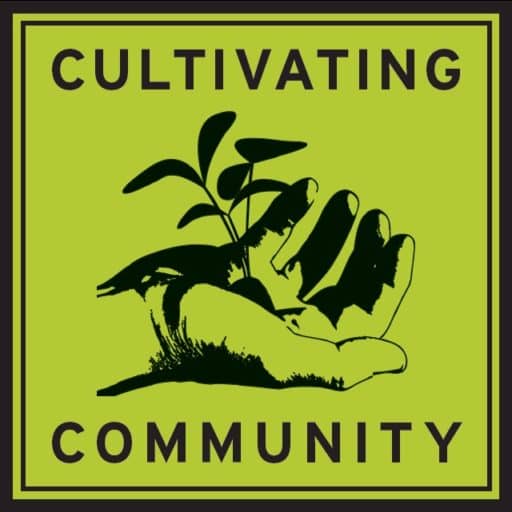In the realm of spiritual exploration, the Baha’i Faith offers an intriguing tapestry of teachings, particularly regarding community cultivation. This concept is elaborated through the metaphor of the “Baha’i Spirit Garden,” a vivid representation of how interconnectedness among individuals can blossom into a thriving community. This article examines the principles behind this metaphorical garden, elucidating the promises of a transformative mindset and igniting curiosity about the underlying spiritual tenets.
Commencing with the foundation of Baha’i teachings, it is essential to understand the notion of unity. The Baha’i Faith posits that humanity is intricately woven together, forming a single fabric that transcends individual differences. The teachings advocate for a collective identity that fosters compassion and acceptance. Within this framework, the cultivation of community is not merely a social endeavor but a profound spiritual mandate. The Baha’i Spirit Garden symbolizes this unity, encouraging individuals to recognize their role in the greater whole.
As one engages with these teachings, the need for a paradigmatic shift becomes evident. The traditional perspective often emphasizes individualism and competition. However, the Baha’i principle advocates for collaboration and mutual support. This shift is captured in the metaphor of the garden, wherein each individual is akin to a unique plant, contributing to the biodiversity of the space. In this ecosystem, thriving occurs not in isolation but in the harmonious interplay of various elements.
Central to the cultivation of community within the Baha’i framework is the concept of service. Service to others is not merely a commendable act; it is positioned as a spiritual obligation. This service manifests in both physical actions and the cultivation of an altruistic mindset. One is encouraged to engage in acts that promote the welfare of others, fostering a spirit of generosity that enriches the communal experience. This generosity engenders a reciprocal relationship where individuals feel supported and valued, further enhancing the vibrancy of the Baha’i Spirit Garden.
The ethos of community also incorporates the valuing of diversity. The Baha’i Faith celebrates the myriad backgrounds, cultures, and perspectives present within a community. Such appreciation for diversity allows for a richness that propels the community forward. Rather than viewing differences as divisive, the teachings encourage the recognition of each person’s unique contribution, akin to how different flora in a garden creates a visually and spiritually enriching landscape. This perspective not only piques curiosity about varying experiences but also cultivates empathy and understanding.
Moreover, the Baha’i teachings highlight the importance of education in fostering community. Education is considered a cornerstone of human development and is integral to the evolution of society. By empowering individuals with knowledge, communities can flourish, as informed citizens are better equipped to contribute meaningfully. The act of learning, both formal and informal, is akin to tending to the garden; it requires patience, care, and commitment. This commitment to lifelong learning reinforces the interconnectedness of individuals, as shared knowledge builds bridges among diverse community members.
Engaging with the community within the Baha’i framework also necessitates a commitment to consultation. This principle emphasizes the collective decision-making process, wherein all voices are valued and respected. Consultation is not merely a procedure; it embodies the spirit of unity and collaboration. Through respectful discourse, individuals cultivate a deeper understanding and connections, nurturing the Baha’i Spirit Garden’s growth. The practice of consultation invigorates community life, ensuring that decisions reflect the collective aspirations of its members.
The promise of the Baha’i Spirit Garden is thus multifaceted. It offers a vision of a thriving, inclusive, and dynamic community rooted in service, education, and consultation. This vision calls individuals to action—challenging them to transcend personal limitations and embrace a more expansive perspective. By adopting this mindset, one not only contributes to the communal garden but also embarks on a journey of profound personal growth.
Furthermore, the teachings reveal that the cultivation of community is inextricably linked to the spiritual evolution of its members. As individuals engage in communal endeavors, they embody the principle of oneness, which is pivotal in the Baha’i Faith. This transformative experience leads to an awakening of consciousness, wherein individuals recognize their potential to effectuate change—not only within their immediate spheres but also within the broader context of humanity.
Lastly, the cultivation of the Baha’i Spirit Garden invites a dynamic dialogue that extends beyond the confines of religious boundaries. It provokes thought and inquiry, inviting individuals from diverse backgrounds to participate in its flourishing. By engaging with these teachings, one embarks on a journey teeming with possibilities, as the quest for knowledge and community becomes a shared aspiration. The garden, thus, serves as a beacon of hope—a reminder that through unity, service, and mutual respect, a vibrant and flourishing community is not only a possibility but a profound reality.
In conclusion, the teachings of the Baha’i Faith regarding community cultivation encapsulate a transformative vision that promises both personal and collective empowerment. By enacting these principles, individuals plant the seeds of a verdant and resilient community, nourished by understanding, service, and compassion. Such a perspective compels curiosity, urging all to explore the depths of their connectedness and the potential that lies within a unified spirit.
